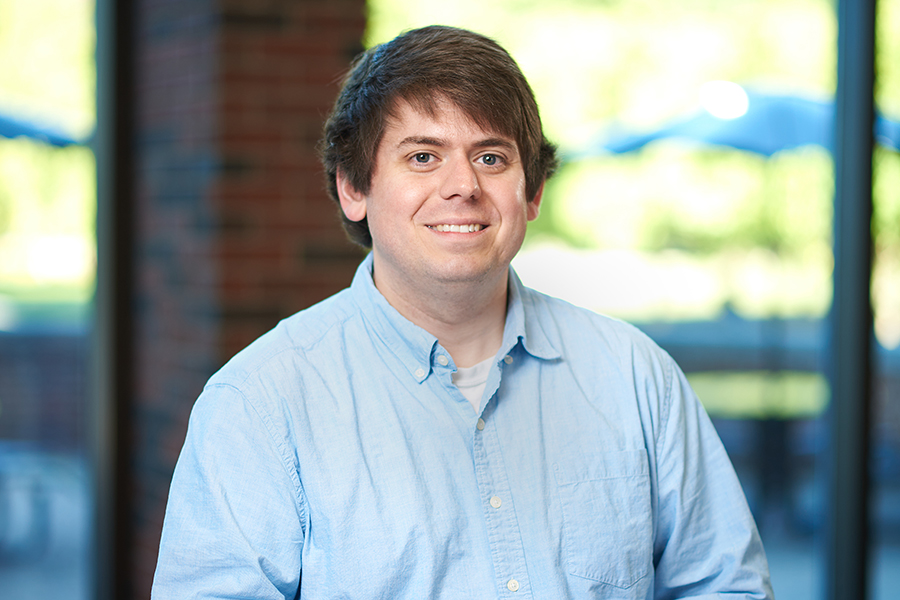Purdue Prof. Christopher Brinton awarded grant from AFOSR Young Investigator Program

Christopher Brinton, Elmore Assistant Professor in Purdue University’s Elmore Family School of Electrical and Computer Engineering, is one of 48 scientists and engineers from 36 institutions and businesses in 20 states who are being awarded grants through the Air Force Office of Scientific Research (AFOSR) 2024 Young Investigator Program (YIP). This is the fourth YIP grant Brinton has received from a government agency, tying a record at Purdue.
Brinton’s latest grant will be used for a project entitled “FogML: Intelligence Orchestration over Heterogeneous, Dynamic, and Contested Fog Learning Environments.” The project focuses on next-generation network systems, which will be increasingly driven by machine learning (ML) algorithms drawing inferences from newly collected measurements. Security concerns, latency requirements, and communication constraints have necessitated approaches for distributing the ML management processes across networks themselves. However, the state-of-the-art in distributed ML is not well suited for dynamic network environments, where the computing nodes are heterogeneous (e.g., a smartphone vs. a drone), and their local dataset statistics, processing capabilities, and physical proximities evolve potentially rapidly over time.
To address this gap, Brinton’s project will develop a novel architecture for orchestrating intelligence models over contemporary network systems, leveraging the proliferation of fog computing nodes (e.g., base stations, unmanned vehicles, satellites) that connect edge devices to the cloud. This project will produce novel analyses that characterize the impact of fog network configurations on the intelligence construction process. It will also produce fog learning orchestration algorithms that optimize multiple DoD (Department of Defense)-relevant objectives simultaneously, including ML quality, threat resilience, response time, and resource utilization. Continued DoD interactions are expected to produce opportunities for methodology transition into defense systems.
“It is a great honor to have been selected for AFOSR’s prestigious YIP program,” said Brinton. “I am very appreciative of all the support from AFOSR, AFRL, and Purdue during the application process. I look forward to working with the Information and Networks division of AFOSR, and our collaborators at AFRL, to orchestrate learning processes on networks that are robust to the types of dynamics found in congested and contested environments.”
YIP recipients receive three-year grants of up to $450,000. The program is open to U.S. citizens and permanent residents who are scientists and engineers at U.S. research institutions. Individuals must have received Ph.D. or equivalent degrees in the last seven years and show exceptional ability and promise for conducting basic research of DAF relevance. Award selections are subject to the successful completion of negotiations with academic institutions and businesses.
Ellen Robinson, AFOSR YIP program manager, says 159 proposals were received for FY24 funding.
“Through the YIP, the Department of the Air Force fosters creative basic research in science and engineering, enhances early career development of outstanding young investigators and increases opportunities for the young investigators to engage in forwarding the Department of the Air Force, or DAF mission and related challenges in science and engineering,” Robinson said.
AFRL/AFOSR programs are supported by university research in addition to providing training grounds for developing and mentoring future scientists and advancing national defense and economic security. The goal of these endeavors is to expand scientific knowledge and explore high-risk basic research with the potential to transition into discovery and development that profoundly impacts the future Air and Space Force.
